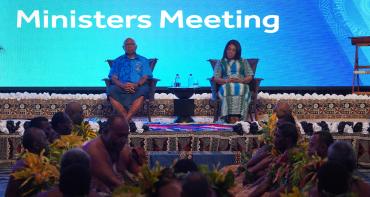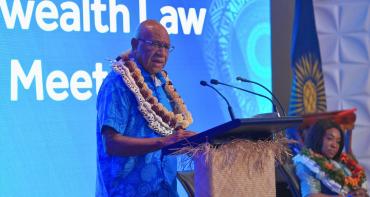The Commonwealth Secretariat is hosting a seminar in London on 14 February to discuss challenges and opportunities in reforming laws that disproportionately affect people living in poverty.
Evidence shows that people living in poverty are particularly penalised, often for minor offences, which are caused in large part by poverty. The impact can be wide-ranging. Their low-income status limits their ability to afford adequate defence, the prosecution of such offences plays no meaningful role in advancing public safety, criminal records for minor offences are often an impediment to gaining employment preventing those prosecuted from improving their economic status, and these cases clog up the criminal justice system, contributing to significant backlogs.
The seminar will allow legal experts from across the Commonwealth to discuss how to address the challenges posed by laws that criminalise people as a result of their social and economic status and what needs to be done to promote equal access to justice.
Co-organised with the Institute of Commonwealth Studies, University of London, the seminar is part of a series of events being hosted by the Secretariat’s Rule of Law Section to discuss emerging legal challenges. Its outcomes will contribute to the Commonwealth Equal Access to Justice Action Plan – a framework endorsed by Commonwealth leaders at their biennial meeting in Rwanda last year.
Speakers include:
- Dunstan Mlambo, Judge President, Gauteng High Court, South Africa
- Catherine Heard, Senior Research Fellow, Institute for Crime and Justice Policy Research, Birkbeck College, University of London, United Kingdom
- Bhavani Fonseka, Senior Researcher and Lawyer, Centre for Policy Alternatives, Sri Lanka
Venue: Marlborough House, London, UK
For additional information, please contact Dr Elizabeth Macharia via Email



